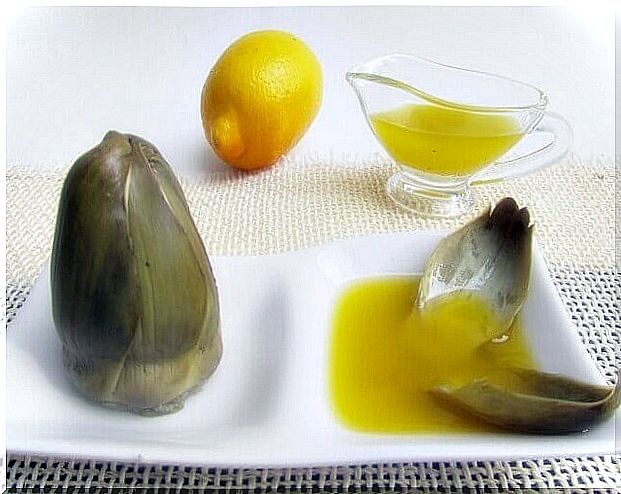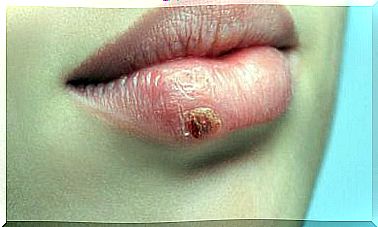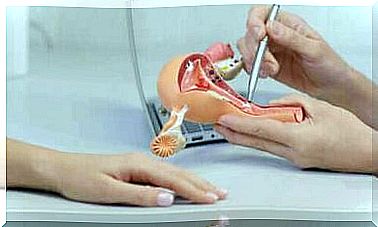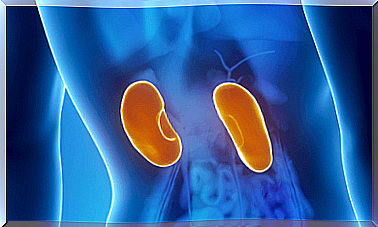The Relationship Between Headaches And The Liver

Headaches can have several causes: migraines, tension and also pain caused by an unhealthy or poisoned liver. In this article, we will talk about the relationship between headaches and the liver, so that you can take better care of your body.
What Is the Connection Between Headaches and the Liver?

If our liver is healthy, our quality of life is good and we don’t even have to think about this organ. But sometimes we can develop digestive problems, fatigue and other symptoms in addition to headaches. This can indicate a mild or serious condition, but the symptoms should not be ignored.
But what is the connection between headaches and the liver? It is a pain that comes and goes and is most severe around the temples or at the back of the head.
In addition, people often confuse the pain with a tension-related headache, but in order to determine the true cause, you have to keep an eye on whether it is accompanied by pain in the abdominal area, a feeling of fullness, discomfort, a bitter taste in the mouth, a white or yellowish film on the tongue or nausea.
Doctors also suggest that it is often associated with insomnia at night and difficulty waking up in the morning. Women can experience very severe symptoms of PMS.
Typically, these headaches arise when the liver is unhealthy or toxic and unable to perform its normal function of sending energy to the brain and extremities. Hence, we experience pain and fatigue.
How can you take better care of your liver and prevent these headaches?

1. Diet Guidelines
- Avoid eating large amounts of food. It’s fine to eat until you’re full, but do this through several meals throughout the day. You should never skip breakfast as it is essential for maintaining a healthy metabolism.
- Reduce the consumption of fats, fried foods, processed sugars, alcohol, salt and dairy products.
- Increase your daily intake of fresh fruits and vegetables. It is best to steam vegetables to preserve the nutrients.
- The best vegetables are those that have a “refreshing” effect on the body, such as green leafy vegetables with a bitter taste. Why is this? Because they help calm the liver. This means that they have an anti-inflammatory effect, which improves liver function. One of the best foods in this category is the artichoke.
- Some herbs can be of great help, such as milk thistle, ginger, dandelion and green tea. All have cleansing properties that stimulate drainage and promote proper liver function.
2. Behavioral and Emotional Guidelines
As you already know, your daily habits directly affect the health of your liver. It is recommended to do some form of physical activity or run for 15 minutes a day for at least half an hour. It doesn’t matter what you choose, as long as it raises your heart rate.
In addition, it is important to keep your emotional state in check. Reduce the levels of stress and anxiety and don’t forget to take care of your priorities: your health, happiness and enjoyment of everyday life.
Also, always try to find a few hours for yourself and to make the most of the simplest things, even if that means being alone with your thoughts in a park or having a cup of coffee with some friends (remember not that coffee is good for the liver).
In addition, surround yourself with people who love you, respect you, and want the best for you. If you feel like you need to avoid certain people, do so before your health is negatively impacted!
All of these seemingly minor things can contribute to liver damage and disrupt the body’s natural balance. Do not forget that.
Examples of a good diet to avoid these headaches

We give you a simple diet that you can practice every day. Now that you know the link between headaches and the liver, these foods will help you avoid this pain.
1. Breakfast
- A glass of warm water with the juice of half a lemon
- A slice of whole wheat bread with sugar-free blueberry jam
- Half an apple and some nuts
2. Mid-morning
- One apple or pear
- Or a cup of green tea with whole wheat toast and a few drops of olive oil
3. Lunch
- Grilled vegetables (broccoli, Brussels sprouts…)
- Grilled white fish
- A small bowl of diced papaya
4. Snack
- A glass of water with a bowl of oatmeal and strawberries
5. Dinner
- Cooked artichokes with olive oil and vinegar
- Brown rice cooked with olive oil, a little salt and a bay leaf
- A Kiwi
- Remember that salads are not a good choice to eat for dinner. After all, it takes a lot of energy to digest vegetables. It is therefore better to save salads for lunch.
6. An hour before bedtime
- A tea made with lemon balm, mint or thyme. You will definitely sleep better.









